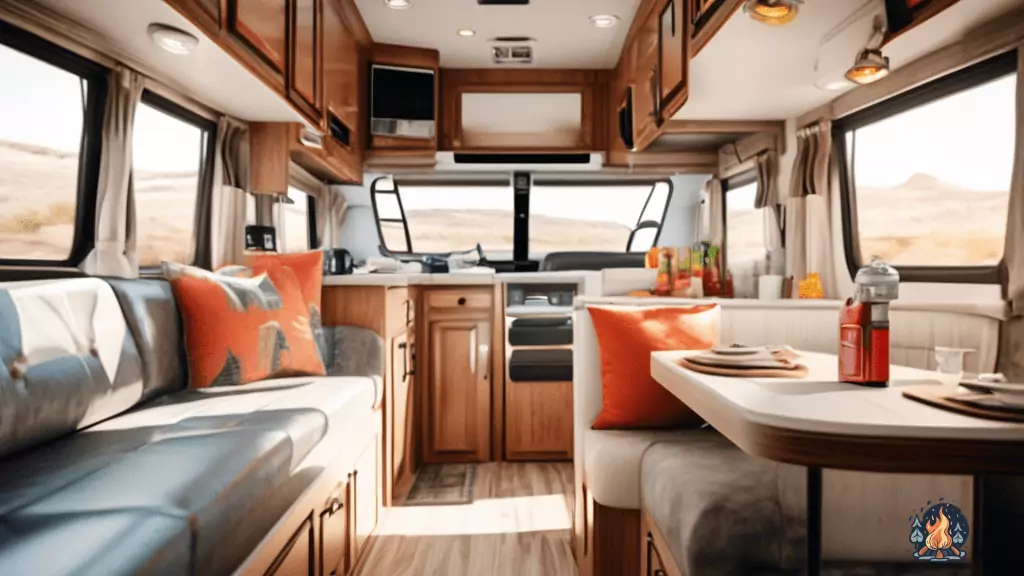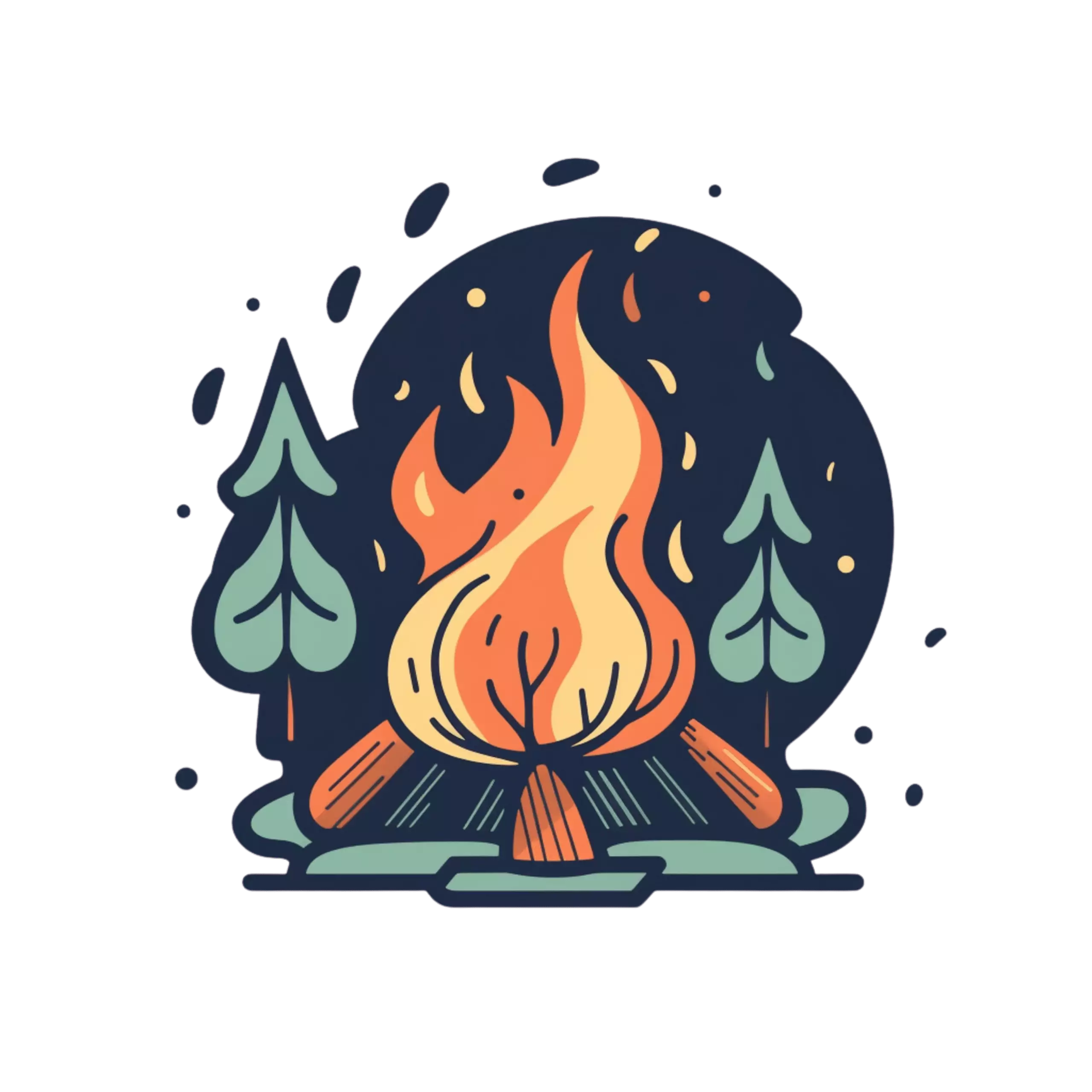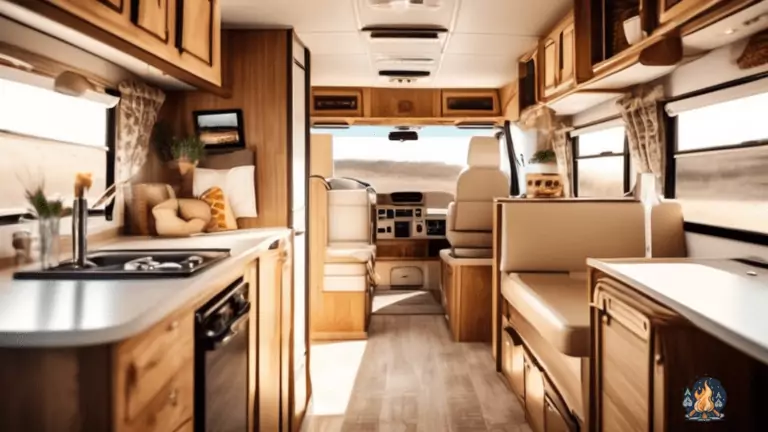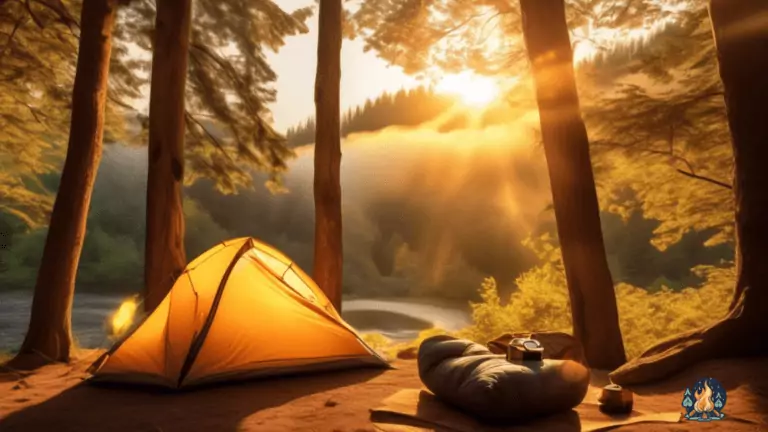Essential Safety Equipment For Your RV: Tips For Beginners
by Kevin Fairbanks • Updated: January 22, 2024
Ensure a worry-free adventure on the road with these essential RV safety equipment tips for beginners. Stay safe and click now for expert advice!

Are you a beginner RV enthusiast, ready to hit the open road and embark on thrilling adventures? Well, before you rev up that engine and start your journey, it’s crucial to ensure the safety of yourself and your fellow travelers.
In this article, we’ll guide you through the essential safety equipment you need for your RV, so you can enjoy your travels worry-free.
First things first, let’s talk about fire safety. You never know when a fire might break out in your RV, so it’s essential to choose the right fire extinguisher. Don’t worry, we’re not going to make you decipher complicated codes and specifications. Just remember to look for an extinguisher labeled "RV" or "Marine" as they are specifically designed for the unique challenges of mobile living.
And hey, if you’re lucky, you might even get to put out a marshmallow-roasting mishap instead of a real fire. Remember, safety can be deliciously entertaining too!
Key Takeaways
- Choosing the right fire extinguisher and installing carbon monoxide and smoke detectors are essential for RV safety.
- Investing in a first aid kit designed for RV use is important for handling emergencies while on the road.
- Securing an RV with wheel chocks and stabilizers can prevent movement and accidents.
- Equipping an RV with emergency roadside tools like a tire pressure gauge, jumper cables, multi-tool, and duct tape is crucial for handling unexpected situations.
Choosing the Right Fire Extinguisher
Now that you know the importance of having essential safety equipment for your RV, let’s talk about choosing the right fire extinguisher. Trust me, you don’t want to be caught in a sticky situation without one. It’s like going on a road trip without snacks – just not a good idea.
When it comes to fire extinguishers, size does matter. You want to make sure you get one that is big enough to tackle any potential fires but not so big that it becomes a burden to carry around. It’s like Goldilocks and the three extinguishers – you want one that is just right.
The recommended size for an RV fire extinguisher is between 2.5 and 5 pounds. Anything smaller might not have enough oomph to put out a fire, and anything larger might be too heavy to handle.
But wait, there’s more! You also need to consider the type of fire extinguisher you get. Remember those pesky fire classes from high school? Well, they actually come in handy now. For your RV, you’ll want an extinguisher that’s rated for Class B and Class C fires. Class B fires involve flammable liquids like gasoline, oil, or propane, while Class C fires involve electrical equipment. So basically, you want a fire extinguisher that can handle both liquid fires and fires caused by your RV’s electrical system. It’s like getting a multi-tool for your fire-fighting needs.
So, my friend, when it comes to choosing the right fire extinguisher for your RV, remember to find one that’s the perfect size and can handle both liquid and electrical fires. Don’t skimp on safety – you’ll thank me later when you’re able to put out a fire and save the day.
Just make sure to keep it within reach, because you never know when a fire-breathing dragon might show up on your camping trip.
Stay safe out there, and happy RV-ing!
Installing Carbon Monoxide and Smoke Detectors
When outfitting your RV, it’s like giving your home a pair of vigilant guardians with carbon monoxide and smoke detectors. These little devices are like the Batman and Robin of safety equipment, always on the lookout for danger and ready to alert you at the first sign of trouble.
Carbon monoxide detectors are especially important since RVs can sometimes be prone to leaks or faulty exhaust systems. They’ll make sure you don’t accidentally fall asleep forever while enjoying a cozy evening in your home away from home.
And let’s not forget about the smoke detectors! They’re like the eagle-eyed superheroes of fire prevention, ready to sound the alarm if your cooking skills accidentally turn into a three-alarm disaster. So, go ahead and install these trusty sidekicks in your RV, and let them watch over you and your travels with their unwavering vigilance.
Now, I know what you’re thinking. "But wait, won’t the detectors go off all the time, ruining my peaceful nights in the wilderness?" Fear not, my fellow adventurer, for these modern marvels are designed to be sensitive to the presence of danger, but not to your burnt toast or the occasional campfire smoke. They won’t be the annoying alarm clocks that wake you up at the crack of dawn on your much-needed vacation.
Instead, they’ll silently stand guard, only springing into action when it really matters. It’s like having a trusty sidekick who knows when to stay quiet and when to shout "Danger, danger!"
So, don’t overlook the importance of installing carbon monoxide and smoke detectors in your RV. They may just save the day (and your bacon) when you least expect it.
Investing in a First Aid Kit
Make sure you invest in a first aid kit for your RV – it’s a small but crucial item that can provide peace of mind and potentially save lives. When you’re out on the road, accidents can happen, and having a well-stocked first aid kit can make all the difference. But don’t just settle for any old first aid kit – make sure you get one that is specifically designed for RV use. These kits are typically more comprehensive and include items that are specifically tailored to the types of injuries that can occur while RVing.
To give you an idea of what a well-equipped RV first aid kit should include, here’s a handy table:
| Item | Purpose | Quantity |
|---|---|---|
| Bandages | Covering wounds and preventing infection | 20 |
| Gauze pads | Absorbing blood and promoting healing | 10 |
| Antiseptic | Cleaning wounds and preventing infection | 1 bottle |
Of course, this is just a basic list, and you can always add more items based on your specific needs and preferences. The key is to have the essentials covered so that you can quickly and effectively treat any injuries that may occur during your RV adventures. So, don’t forget to pack a first aid kit before hitting the road – it’s a small investment that can make a big difference in an emergency situation. Stay safe and happy RVing!
Securing Your RV with Wheel Chocks and Stabilizers
Using wheel chocks and stabilizers is like putting a strong anchor on your RV, ensuring it stays secure and steady even in the face of strong winds or uneven terrain.
Picture this: you’re enjoying a relaxing camping trip, sitting inside your cozy RV, when suddenly a gust of wind comes out of nowhere and starts rocking your home on wheels. It’s like being on a roller coaster, except you didn’t sign up for this ride! That’s where wheel chocks and stabilizers come to the rescue. They’re like the bouncers of the RV world, keeping your vehicle from swaying like a drunken sailor.
So, invest in some wheel chocks and stabilizers, and say goodbye to the motion sickness that comes with a wobbly RV.
Now, let’s talk about the uneven terrain. You’re driving along, taking in the scenic views, when suddenly you encounter a patch of rough road or a slope that makes your heart skip a beat. Your RV starts to shift, and you feel like you’re in a real-life episode of "Survivor." But fear not, my friend! Wheel chocks and stabilizers are here to save the day. Just like a trusty sidekick, they provide support and stability, keeping your RV grounded even when the ground beneath you is anything but level.
So, don’t let the ups and downs of the road throw you off balance. Get yourself some wheel chocks and stabilizers, and let them be the heroes that keep your RV on solid ground.
Equipping Your RV with Emergency Roadside Tools
Outfitting your RV with emergency roadside tools is a must for any road trip adventure. You never know when you might encounter a flat tire or a mechanical issue, and having the right tools on hand can save you from a major headache.
Here are some essential tools that should be in every RV owner’s toolbox:
- Tire Pressure Gauge: Keep your tires properly inflated with a trusty tire pressure gauge. It’s a small tool that can prevent big problems on the road.
- Jumper Cables: Dead battery? No problem! With a set of jumper cables, you can easily get your RV up and running again.
- Multi-Tool: A multi-tool is like a Swiss Army knife on steroids. It’s a compact gadget that combines multiple tools into one, including pliers, screwdrivers, and a knife. It’s perfect for quick fixes and small repairs.
- Duct Tape: Ah, the magical solution to all of life’s problems. Duct tape can temporarily fix leaks, secure loose parts, and even fashion makeshift repairs. It’s a must-have for any DIY enthusiast or MacGyver wannabe.
With these emergency roadside tools at your disposal, you’ll be ready to tackle any unexpected situation that comes your way. Just remember, it’s always better to be over-prepared than under-prepared. Happy and safe travels!
Frequently Asked Questions
What are some common mistakes to avoid when choosing a fire extinguisher for your RV?
When choosing a fire extinguisher for your RV, avoid these common mistakes: 1) opting for a tiny extinguisher that can barely put out a candle, 2) forgetting to check the expiration date, and 3) ignoring proper maintenance. Safety first, adventurer!
How often should carbon monoxide and smoke detectors be tested and replaced in an RV?
You should test and replace carbon monoxide and smoke detectors in your RV at least once a year. Don’t forget to check the batteries too, unless you want your detectors to nap on the job! Safety first, folks!
Are there any specific items that should be included in a first aid kit for RV travel?
When it comes to your first aid kit for RV travel, you’ll need the essentials: band-aids, antiseptic, and pain relievers. But why stop there? Add a unicorn horn for magical healing powers, just in case. Safety first, right?
Can wheel chocks and stabilizers be used on any type of RV, or are they specific to certain models?
Yes, wheel chocks and stabilizers can be used on any type of RV! They’re like the superheroes of the RV world, keeping your wheels from rolling and your rig steady. So go ahead, rock that RV life!
What are the essential emergency roadside tools that every RV owner should carry?
Got an RV? Don’t forget these essential emergency roadside tools! Jazzy jack, powerful pump, handy flashlight, trusty tire gauge, reliable rope, and a nifty multi-tool. Be prepared and giggle at any road mishap!

Hi, I’m Kevin, a lifelong camping enthusiast and the voice behind Campfire Discoveries. From tent to RV to cabin camping, I’ve explored it all. Join me as we share stories and tips around the campfire, deepening our connection with the great outdoors.
Keep Reading
-
Smart RV Organization Ideas For Beginners
Tired of RV chaos? Check out these smart RV organization ideas for beginners and say goodbye to clutter on the road. Get inspired now!
-
Relax And Rejuvenate: RV Resorts With Luxurious Spas
Pamper yourself on your RV getaway with these top-notch resorts featuring luxurious spas. Discover where to relax and rejuvenate, and start planning your ultimate spa retreat today!
-
Choosing The Right Camping Sleeping Bag For Your Adventure
Find the perfect camping sleeping bag for your adventure and sleep like a dream under the stars! Click now for expert tips and recommendations to choose the right one.



